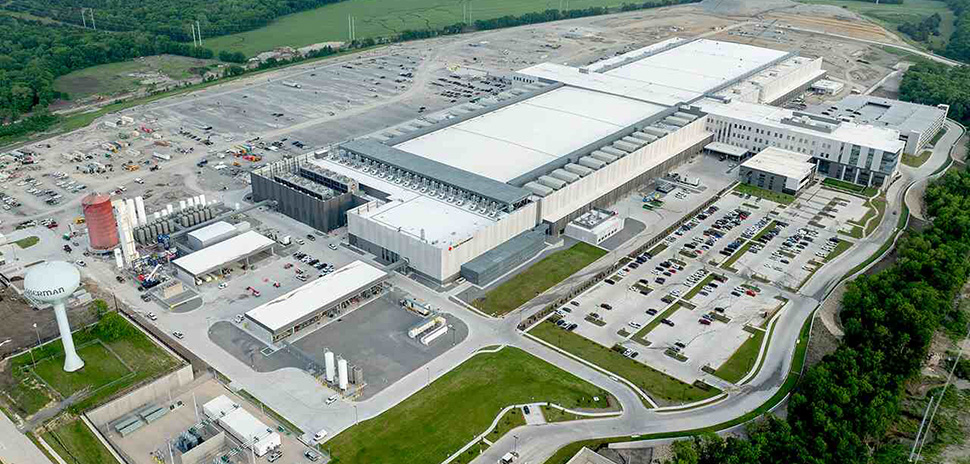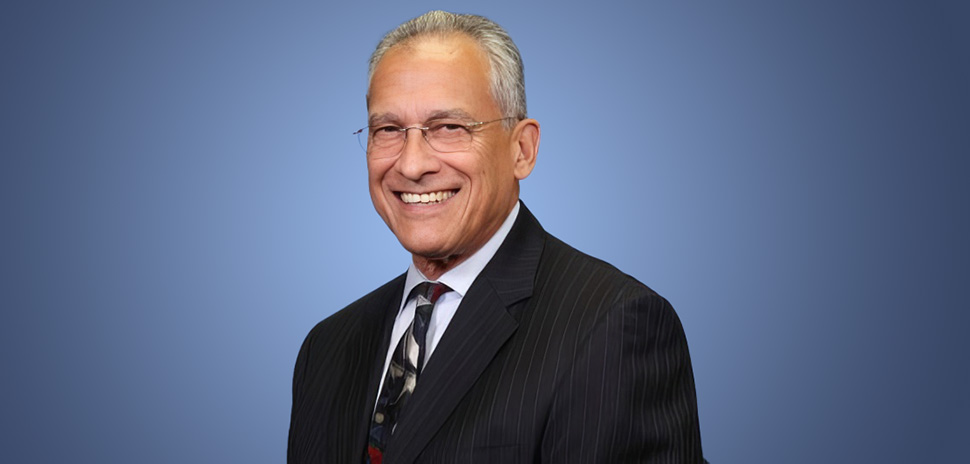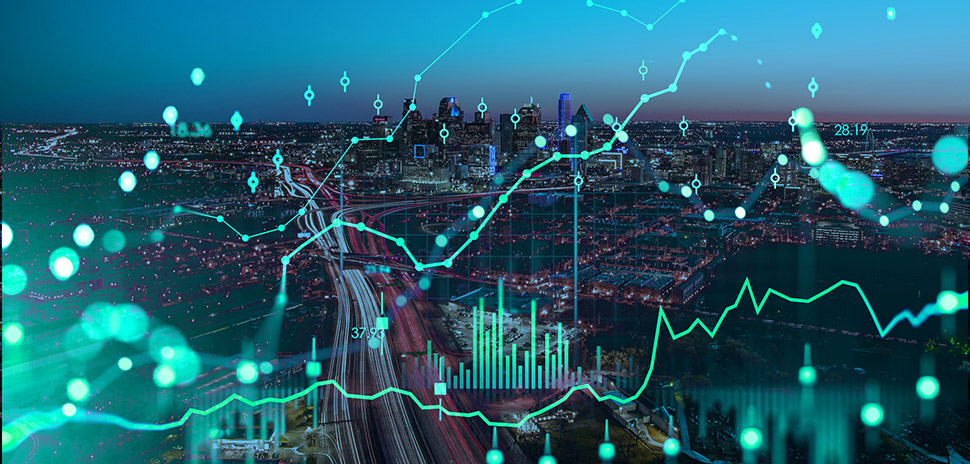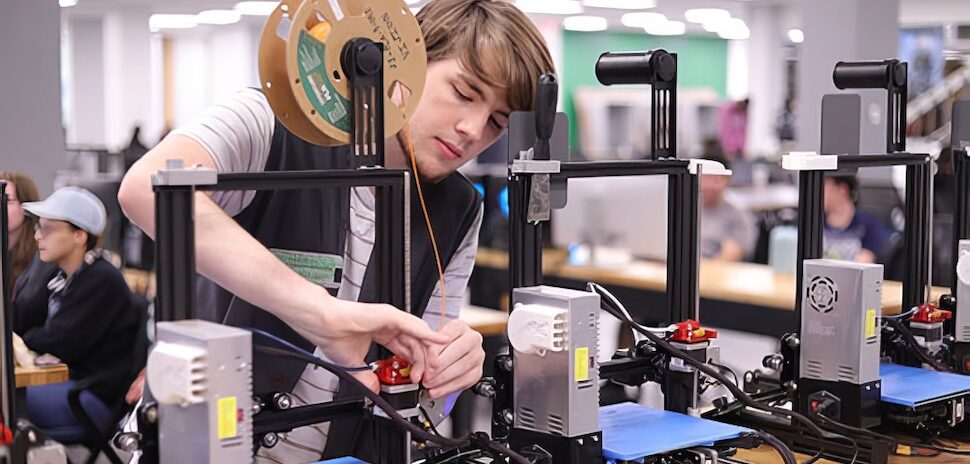
Texas Instruments’ new 300mm semiconductor “fabs” in Sherman, Texas, SM1 and SM2. Two other TI semiconductor fabrication plants are planned adjacent to the ones seen above. [Photo: Texas Instruments]
Apple announced a new $100 billion commitment to manufacturing in America Monday, in a move that furthers the goals of the Trump administration to ramp up manufacturing within the nation’s borders. In all, Apple said its investments in stateside manufacturing now total $600 billion over the next four years—and a significant chunk of that money will be spent right here in North Texas.
A lot of that impact will be felt in the city of Sherman, a growing manufacturing center 60 miles north of Dallas. For the first time, Apple said it’s partnering with GlobalWafers America in Sherman to produce advanced wafers for use in U.S.-based semiconductor “fabs”—short for fabrication plants. (Fabs take silicon wafers and turn them into semiconductor chips.)
![]()
Silicon wafers like the ones seen here are used in manufacturing semiconductors, and are made at GlobalWafers’ new $5B GlobiTech facility in Sherman. [Photo: GlobiTech]
Texas Instruments’s new fabs in Sherman will use GWA’s 300mm wafers to produce chips for iPhones and iPads sold in the U.S. and around the world, Apple said. (In June, TI said it plans to invest more than $60 billion across seven U.S. semiconductor “fabs,” including a total of four planned in Sherman and two more in Lehi, Utah—marking the largest investment in foundational semiconductor manufacturing in U.S. history.)
Apple said it’s strengthening its partnership with Dallas-based TI by supporting additional tool installations at facility in Lehi and its new facility in Sherman. The facilities “are home to TI’s most advanced process technologies and use American-made chip manufacturing equipment from Applied Materials’ factory in Austin, as well as advanced silicon wafers from GlobalWafers America,” Apple noted, adding that the facilities will manufacture “critical foundational semiconductors” used for Apple products, including iPhone devices shipped in the U.S. and internationally.
In addition, Apple said it has entered into a new multiyear agreement with Pennsylvania-based Coherent, a longtime partner that produces the VCSEL lasers that enable features like Face ID on iPhones sand iPads. The work takes place at Coherent’s facility in—you guessed it, Sherman, Texas.
Monday’s news follows Apple’s June announcement that it had struck a $500 million deal to buy rare earth magnets from Las Vegas-based MP Materials—with the magnets to be developed from 100% recycled materials at MP Materials’ flagship manufacturing plant in Fort Worth.
Apple’s new American Manufacturing Program
Cupertino, California-based Apple also announced its new American Manufacturing Program (AMP), designed to bring even more of the company’s supply chain and advanced manufacturing to the U.S. Through AMP, Apple said it will “increase its investment across America and incentivize global companies to manufacture even more critical components in the United States.”
“Today, we’re proud to increase our investments across the United States to $600 billion over four years and launch our new American Manufacturing Program,” Apple CEO Tim Cook said in a statement.. “This includes new and expanded work with 10 companies across America. They produce components that are used in Apple products sold all over the world, and we’re grateful to the President for his support.”
Apple’s other investments in Texas
Apple’s investments in Texas stretch southward as well.
In Austin, Apple is partnering with Santa Clara, California-based Applied Materials to boost the production of semiconductor manufacturing equipment. Apple called Applied’s site in Austin “a pivotal hub for manufacturing cutting-edge chip equipment.”
Apple is also working with South Korean electronics giant Samsung at its fab in Austin, developing an “innovative new technology for making chips, which has never been used before anywhere in the world.” Apple said the fab will supply chips that optimize power and performance of Apple products, including iPhones shipped worldwide.
Elsewhere in the Texas capital, construction is continuing on Apple’s second campus in Austin.
Apple said it has more than 13,000 team members across Texas, including thousands already working from its three completed office buildings, exceeding 1 million square feet. The three buildings now under construction include an expansive new R&D lab space for Apple’s Hardware Engineering, Hardware Technology, and Software Engineering teams, the company said.
Don’t miss what’s next. Subscribe to Dallas Innovates.
Track Dallas-Fort Worth’s business and innovation landscape with our curated news in your inbox Tuesday-Thursday.
R E A D N E X T
-

Dallas Innovates, in partnership with the Dallas Regional Chamber, once again is recognizing the most innovative leaders in AI in Dallas-Fort Worth. From visionaries and mavericks to transformers and academics, AI 75’s class of 2025 are the AI pacesetters you need to know now.
-

In celebration of Dallas Arts Month, Communities Foundation of Texas is presenting North Texas Gives to the Arts, a fundraising campaign that lives on the NorthTexasGivingDay.org platform. The campaign—which runs through April 30—includes $100,000 in total matching funds from The Giana Foundation Fund, the Robert B. and Virginia Payne Fund for Arts & Culture, and CFT.
-

The Texas Research Alliance helps businesses, public agencies, and governments engage with North Texas’ robust higher education research infrastructure to advance a wide range of goals. And yes, that includes mobility—which is why the TRA developed the North Texas Center for Mobility Technologies, a collaboration among industry, the North Central Texas Council of Governments, UNT, UTA, SMU, and UTD to develop advanced mobility technologies in North Texas.
-

North Texas grabbed the world’s financial attention again this week with updates from the Dallas-based Texas Stock Exchange, which introduced its expansive leadership team and board members and said it had raised over $135 million to date. But as Austin-based Paul O’Brien noted in his LinkedIn Startup Studio post last month, the TXSE is just the tip of the iceberg when it comes to North Texas’ sprawling fintech and financial universe.
-

At the University of North Texas’ Willis Library in Denton, you can find lots of books. But something else is getting checked out: The Spark, one of three makerspaces operated by the university. Open to all UNT students, faculty, and staff, The Spark offers a long list of high-tech tools that can be accessed after training—including 3D printers, laser cutters, a computer numerical control mill, sewing and embroidery machines, tools for science and pottery projects, and more. Audio-visual gear and power tools at The Spark can be borrowed as well.